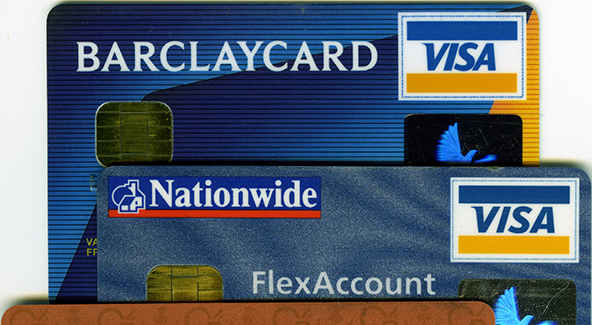Final Provisions of CARD Act Take Effect

The third and final batch of credit card rules, passed by Congress last year in the form of the Credit Card Accountability, Responsibility and Disclosure (CARD) Act, went into effect on Sunday. The Act was designed to protect card users from certain “unfair” practices used by credit card companies.
The final provisions ban card issuers from charging more than $25 for late payments, under most circumstances, and from charging cardholders fees for not using their cards. Issuers are now also prevented from charging multiple fees for the same violation and from increasing interest rates without explanation. Additionally, issuers are now required to review interest rate increases imposed after January 1, 2009, and lower rates for consumers in good standing. Gift cards will now be good for no less than five years.
The CARD Act represents a truly comprehensive reform of how credit card companies do business and it really is a big win for consumers. Here is a list of its key features, as summarized by the White House on the day President Obama signed the Act:
- Bans Retroactive Rate Increases: Bans rate increases on existing balances due to “any time, any reason” or “universal default” and severely restricts retroactive rate increases due to late payment.
- First Year Protection: Contract terms must be clearly spelled out and stable for the entirety of the first year. Firms may continue to offer promotional rates with new accounts or during the life of an account, but these rates must be clearly disclosed and last at least 6 months.
…
- Ends Late Fee Traps: Institutions will have to give card holders a reasonable time to pay the monthly bill – at least 21 calendar days from time of mailing. The act also ends late fee traps such as weekend deadlines, due dates that change each month, and deadlines that fall in the middle of the day.
- Enforces Fair Interest Calculation: Credit card companies will be required to apply excess payments to the highest interest balance first, as consumers expect them to do.?áThe act also ends the confusing and unfair practice by which issuers use the balance in a previous month to calculate interest charges on the current month, so called “double-cycle” billing.
- Requires Opt-In to Over-Limit Fees: Consumers will find it easier to avoid over-limit fees because institutions will have to obtain a consumer’s permission to process transactions that would place the account over the limit.
- Restrains Unfair Sub-Prime Fees: Fees on subprime, low-limit credit cards will be substantially restricted.
- Limits Fees on Gift and Stored Value Cards: The act enhances disclosure on fees for gift and stored value cards and restricts inactivity fees unless the card has been inactive for at least 12 months.
…
- Plain Language in Plain Sight:?áCreditors will give consumers clear disclosures of account terms before consumers open an account, and clear statements of the activity on consumers’ accounts afterwards. For example, pre-opening disclosures will highlight fees consumers may be charged and periodic statements will conspicuously display fees they have paid in the current month and the year to date as well as the reasons for those fees. These disclosures will help consumers make informed choices about using the right financial products and managing their own financial needs. Model disclosures will be updated regularly based on reviews of the market, empirical research, and testing with consumers to ensure that disclosures remain clear, useful, and relevant.
- Real Information about the Financial Consequences of Decisions: Issuers will be required to show the consequences to consumers of their credit decisions.
- Issuers will need to display on periodic statements how long it would take to pay off the existing balance – and the total interest cost – if the consumer paid only the minimum due.
- Issuers will also have to display the payment amount and total interest cost to pay off the existing balance in 36 months.
…
- Public posting of credit card contracts:?áToday credit card contracts are usually available only in hard copy and not in plain language. Now issuers will be required to make contracts available on the Internet in a usable format. Regulators and consumer advocates will be better able to monitor changes in credit card terms and evaluate whether current disclosures and protections are adequate.
- Holds regulators accountable to enforce the law:?á Regulators will be required to report annually to the Congress on their enforcement of credit card protections.
- Holds regulators accountable to keep protections current:
- Regulators will be required to request public input on trends in the credit card market and potential consumer protection issues on a biennial basis to determine what new regulations or disclosures might be needed.
- Regulators will be required either to update the applicable rules, or to publish findings if they deem further regulation unnecessary.
- Increases penalties: Card issuers that violate these new restrictions will face significantly higher penalties than under current law, which should make violations less likely in the first place.
Cleans Up Credit Card Practices For Young People at Universities. The act contains new protections for college students and young adults, including a requirement that card issuers and universities disclose agreements with respect to the marketing or distribution of credit cards to students.
Image credit: SEO-talenti.blogspot.com.



One Comment